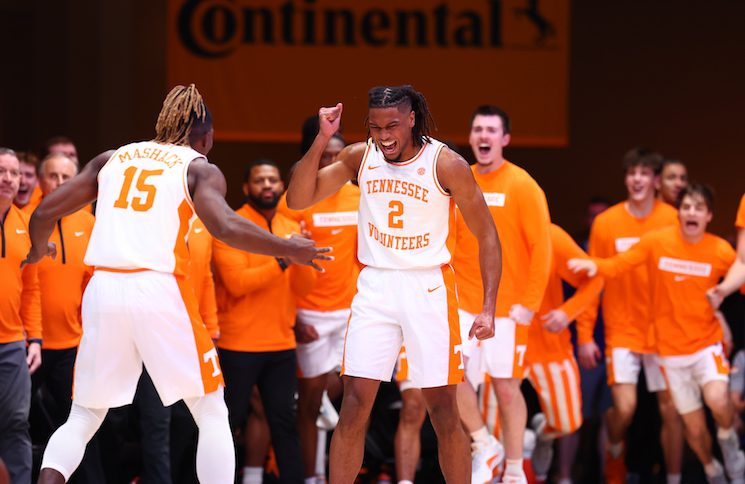Tennessee’s long search for an offensive coordinator finally came to an end this week, and what an end it was.
Jeremy Pruitt tabbed Georgia offensive coordinator Jim Chaney to be his new play-caller heading into this second year as the Vols’ head coach. Chaney spent the last three years at Georgia, and he spent four seasons with Tennessee back in 2009-12.
Throughout Chaney’s 19 years as an offensive coordinator at five different schools, he’s had very consistent production. Of the 19 teams he’s called plays for, 12 of them have averaged at least 29 points per game, and 11 of them have averaged at least 400 yards per game. He’s also coached seven quarterbacks who have ended up in the NFL in some capacity, most notably including Drew Brees and Kyle Orton.
But what kind of offense is Chaney inheriting at Tennessee for the upcoming 2019 season?
The Vols won’t be short on experience in 2019 on offense. As of right now, Tennessee returns starting quarterback Jarrett Guarantano, starting tailbacks Ty Chandler and Tim Jordan, their starting receivers in Marquez Callaway, Jauan Jennings, and Josh Palmer, and starting tight end Dominick Wood-Anderson.
As a team, the Vols are expected to return 80.9 percent of their passing yards, 76.6 percent of their rushing yards (excluding Jeremy Banks), and 99.4 percent of their receiving yards from the 2018 season.
But as skilled and experienced as the skill positions are, UT’s offensive line will be Chaney’s biggest obstacle to plan around in 2019.
According to advanced statistics, Tennessee’s offensive line was one of the worst offensive lines in all of college football last season and was likely the worst offensive line in the Power Five. That won’t come as a surprise to any Tennessee fan who watched any of UT’s games last year, but it’s the biggest negative to the Vols’ offense right now.
The addition of five-star offensive tackle Wanya Morris as an early enrollee will help, and that will further be boosted if Tennessee ends up signing five-star offensive tackle Darnell Wright in the 2019 class as well. Another year in UT’s system and strength and conditioning program will also help.
But it’s clear that the offensive line will still hold Tennessee’s offense back from its full potential next season.
From a statistical perspective, there’s really only one way to go for Chaney in his first year back in Knoxville: Up.
The Vols showed improvement in almost every aspect of their offense in 2018 compared to 2017, but the progress was minimal, and Tennessee’s 2017 offense was the worst statistical production UT had gotten out of its offense since the historically bad 2008 offense.
Tennessee still ranked dead last in the SEC in offensive yards per game and were second-to-last in points per game and yards per play.
Here’s how Tennessee’s offense ranked in major offensive categories compared to the other 130 teams in the FBS last season:
Points Per Game: 108th
Yards Per Game: 122nd
Rushing Yards Per Game: 114th
Passing Yards Per Game: 97th
Yards Per Play: 88th
Third Down Conversions: 74th
Red Zone Scoring: 28th
Giveaways: 30th
Tennessee tried to run a more ball-control offense last season and really tried to slow down the tempo of their offense. That was part of the reason why UT’s numbers were as low as they were, but Tennessee’s offense was also just downright bad at times. The Vols scored 24 or fewer points on offense in all but one of their games last season (vs. ETSU). Tennessee as a team scored 30 points against Auburn, but one of those touchdowns came on defense. The Vols also totaled less than 400 yards of offense in nine of their 12 games in 2018.
Chaney will have a lot of experience to work with when he gets ahold of Tennessee’s offensive players, but he’ll be working with players who haven’t had much success while on the field. The Vols have been right at the bottom of the SEC in offensive production the last two years, and the team as a whole have won just nine games the last two seasons and have only won two SEC games in their last 16 conference match-ups.
Vol fans shouldn’t expect miracles from Chaney’s offense in 2019, but there should be a noticeable uptick in production from last season. Based on Chaney’s track record, the Vols should be able to move the ball better and put up more points, but they’ll still likely be in the bottom half of the SEC in most categories.



